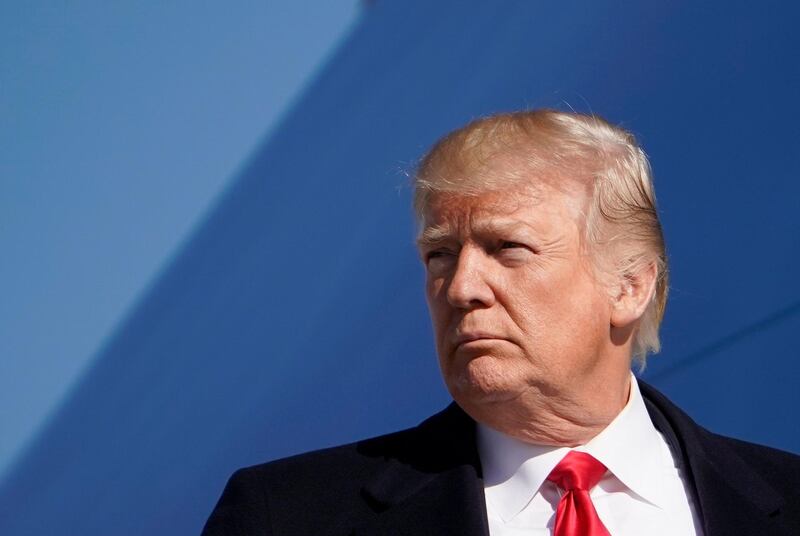As the US government shutdown approaches day three, the failure of President Trump's White House and the US congress to agree is becoming ever clearer.
The impasse is over funding measures but the effects are already far-reaching - on the state department, the department of defence and on the president's own foreign travel agenda.
A senior state department official who was outlining the new US strategy in Syria on Friday - shutdown day - was unable to answer a question about the impact of the shutdown on US diplomatic activities and operations abroad. "I am going to have to punt on this. That is a management decision and it assumes a shutdown takes place," he said.
Thousands of state department employees may go into work on Monday but not get paid as it is unclear whether there are contingency plans in place. According to the Vox news website, General William Todd, acting director at state, informed employees that “a number of government activities would cease due to a lack of appropriated funding, and that a number of employees would be temporarily furloughed.”
So far diplomatic travel for Secretary of State Rex Tillerson and Vice President Mike Pence remains unaffected by the shutdown. Mr Tillerson is on his way to Europe and Mr Pence is in the Middle East. Both trips were considered “integral to America’s national security and diplomatic objectives” and were allowed despite the crisis.
But the president's travel plans are another matter. Mr Trump's enforced confinement in Washington to oversee negotiations to allocate funding -even temporary- for his administration is said to have left him feeling irritated and frustrated by the gridlock - not least because he had to miss an inauguration anniversary party on Saturday at his resort in Mar-a-lago. His plans to attend the World Economic Forum in Davos are also up in the air. He is currently scheduled to arrive in Switzerland on Thursday and give a speech on Friday but Mick Mulvaney, director of the Office of Management and Budget, said the White House will decide on the president's movements "day to day."
On Monday, the State Department will alert its thousands of employees and embassies abroad on who and what will be deemed “nonessential” and who will be be put on obligatory leave.
Daniel Shapiro, the former US Ambassador to Israel experienced the last shutdown in 2013, which lasted 16 days. "Shutdowns make us look incompetent before the world," he told The National. "Embassies cannot conduct normal business with their host governments. If you are trying to build a coalition to strengthen sanctions on North Korea or Iran, for example, a shutdown ties your hands. Foreign leaders and publics who already question the competence and coherence of the Trump foreign policy now have an additional reason to do so."
A Gallup world poll released last week showed the global approval rating for for the US leadership to be at an all time low of 30 percent - lower than it was under both the George W Bush and the Barack Obama administrations.
However, not everyone abroad understands understands the concept of shutdown or its implications, said Randa Slim, director of Track II dialogue at the Middle East Institute.
Some twitter users in the Middle East are interpreting the shutdown as a complete termination of US government activities. “Trump has delivered the punch and shut down the US government,” said one tweet.
[ https://twitter.com/RawanAlT1989/status/954637523984273408 ]
Others compared congress to the Iraqi parliament for its inability to agree on a budget :
[ https://twitter.com/MayahGhanim/status/954634679935782912 ]
Nonetheless, Ms Slim said the development “reinforces a narrative shared by US allies and enemies of a chaotic [Trump] administration that is led by a mercurial and unpredictable President - an U.S. administration that is increasingly perceived as an unreliable partner.”
US defence secretary James Mattis on Friday gave a stark warning of the impact on his department in an address at Johns Hopkins University.
"Maintenance activities will probably pretty much shut down,” he said, "and a lot of intelligence operations around the world, and they cost money. Those, obviously, would stop. And I would just tell you that training for almost our entire reserve force will stop." He called on Congress to lead and do its job.
For US troops, it could mean no National Football League playoffs on Sunday night as the Armed Forces Network (AFN) is in shutdown.
[ https://twitter.com/JackSully492/status/954623701433110528 ]







